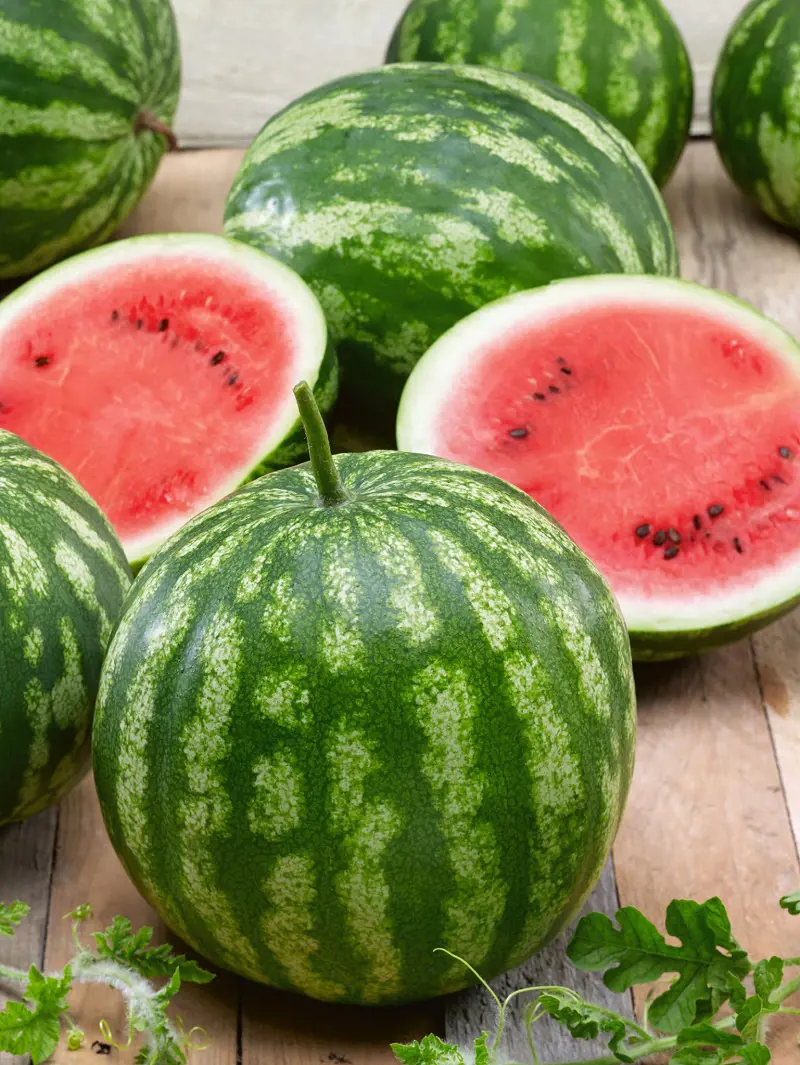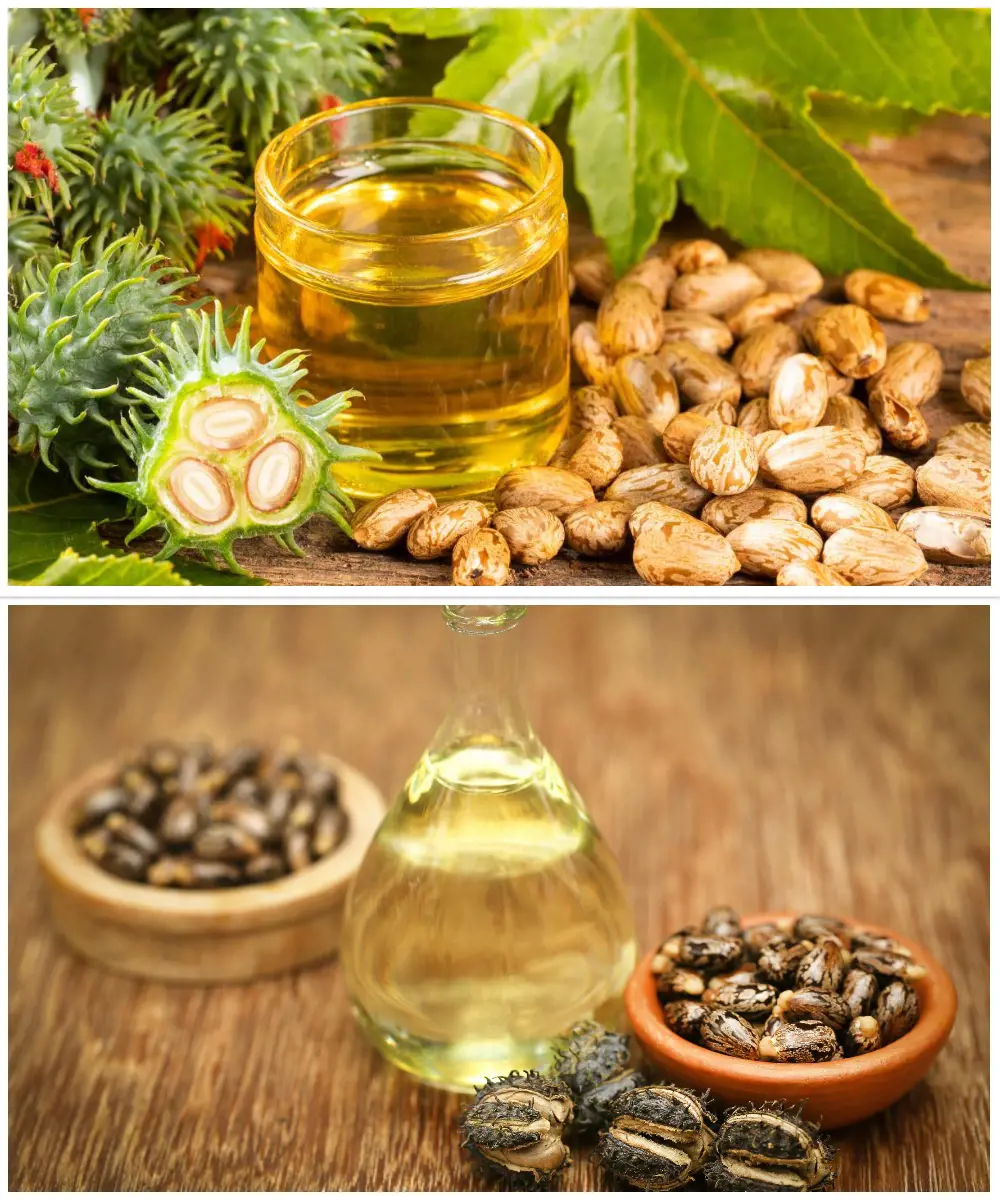13 Health Benefits of Watermelon

This post may contain affiliate links. If you make a purchase through links on our site, we may earn a commission.
Watermelon is a delicious summer favorite fruit that's incredibly hydrating (up to 92% water) and contains low-fat and low calories. This refreshing fruit is high in vitamins A and C and healthy plant compounds such as lycopene. So, it not only delights your taste buds but also provides a range of health advantages.
The health benefits of watermelon include everything from brain function to overall wellness. It helps to improve cardiovascular health, promotes healthy kidneys, nourishes eyes, and boosts the immune system. Discover more about the various advantages of including watermelon in your healthy diet.
1. Helps Stay Hydrated

To function your body appropriately, you need to stay hydrated. Some bodily procedures like normal organ function, temperature regulation, alertness, and nutrient delivery to cells depend on adequate hydration. As you are aware, drinking water is essential to keep the body hydrated, so eating fruit and vegetables high in water content assists in the procedure.
As a juicy fruit, watermelon contains 92% of water. It means you will get a good volume of water in your body, and it's great for daily water intake. Due to its high water range, it has low-calorie content, which aids in keeping you feeling full for longer and helps weight management.
2. High In Beneficial Plant Compounds

Watermelon is rich in beneficial plant compounds like vitamin C, carotenoids, lycopene, and cucurbitacin E.
- Vitamin C: It is one of the antioxidants that control cell damage from free radicals. This nutrient content in this fruit prevents the blotting of the veins.
- Carotenoids: It's a plant compounds that contain alpha-carotene and beta-carotene, which your body transforms into vitamin A.
- Lycopene: It is a type of carotenoid that doesn't alter into vitamin A. This potent antioxidant provides a red color to watermelon and is associated with many health benefits.
- Cucurbitacin E: It's a plant compound with antioxidant and anti-inflammatory properties.
- L-citrulline: It's a non-essential amino acid that helps to reduce the side effects of diabetes, osteoarthritis, asthma, and inflammation of the rheumatoid joint.
3. Improves Eye Health

Do you know proper hydration is important for keeping your eyes healthy and preventing dry eyes? Watermelon is about 92% water, making it a good choice to help stimulate hydration. Besides, this fruit is a source of beta-carotene, converted into vitamin A in our body, and good for eyesight.
Vitamin A with lycopene aids in producing the pigments in your eye's retina and presents protection against night blindness, macular deterioration, and other age-related eye troubles. It builds immunity and also safeguards skin and mucus membranes. It improves eyesight power and protects the eye from various infections. The best nourishing benefit of watermelon is that a daily intake of 100g of it will keep your eyes healthy.
4. Help Relieve Muscle Soreness

Watermelon is packed with amino acid citruline, which may reduce muscle soreness and enhance exercise performance. Regular intake of citruline increases the production of nitric oxide, which helps to improve aerobic performance. The compound aids in boosting blood vessels and supports your heart to work less to pump blood through the body.
Not only citrulline but watermelon itself also supports the body after exercise. Watermelon juice also improves citrulline absorption. So, consuming at least 16 ounces of its juice an hour before exercise can reduce muscle soreness and a quicker heart rate recovery.
5. Cleans Kidneys

Consuming watermelon is great for your kidney health, as having a ton of fruits and vegetables slows the progression of kidney disease, lowers acid levels, and controls blood levels. It holds about 6% sugar and 92% water by weight. This juicy fruit is a mild diuretic, so it hydrates and purifies the kidneys.
It includes a high potassium level, which cleans off the toxic deposits in the kidney as it regulates the acidity of urine and controls stone formation. Being affluent in lycopene ensures well-functioning kidneys and even helps to enhance cardiovascular health.
6. Lower Blood Pressure

One of the best benefits of watermelon is controlling high blood pressure. This fruit includes amino acids, potassium, and magnesium, which act together to ward off sclerosis and keep the health of blood vessels, in turn securing smooth blood flow. The amino acid citrulline in watermelon converts this compound to arginine, which aids in creating nitric oxide.
This gas helps to relax blood vessels and boost flexibility in arteries. This effect enables blood flow and lower high blood pressure. Moreover, watermelon assists in maintaining proper electrolyte and acid-base balances in your body and decreases the chance of high blood pressure.
7. Prevent Cardiovascular Disease

Watermelon is a good source of potassium, and this mineral can keep heart rate and blood pressure. The potassium content assists in curing heart disease and keeping your heart fit. So, including a mineral-rich diet will reduce heart attack and stroke risk by decreasing blood pressure and cholesterol levels.
Also, the lycopene in watermelon supports lower cholesterol levels and prevents oxidative damage to cholesterol. It even retains citrulline, an amino acid that may raise nitric oxide levels. This nitric oxide boosts blood vessels and lowers blood pressure. Other vitamins and minerals in this fruit are also good for your heart. These include vitamins A, B6, C, and magnesium.
8. Reduces Dental Problems

Although watermelon is sweet, it is very good for dental health, as it helps to enhance saliva production, remove debris, whiten stained teeth, and provide gum protection. Watermelon is composed of about 92% water. So, it makes your mouth packed with saliva and causes your salivary glands to create more saliva with its fibrous compounds.
It even includes malic acid, known for its bleaching effects, which helps whiten stained teeth. Being a vitamin-rich fruit, it supplies beneficial nutrition, which assists in maintaining the connective tissues and boosts and protects your gum.
9. Fights Cancer

Watermelon is one of the adequate dietary sources of lycopene, an antioxidant known for anti-cancer effects. As a result, it aids in the prevention and treatment of prostate, breast, and endometrial cancers, as well as lung and colon cancer. It contains flavonoids, which guard against these cancers. Additionally, cucurbitacin E is known for its capacity to hamper tumor growth.
It seems to lower cancer risk by decreasing insulin-like growth factor (IGF), a protein involved in cell division, as high IGF levels are associated with cancer. Moreover, it contains vitamins A and C that offer proper protection against oxygen-free radicals and cells of the human body, thus helping lessen the chance of several cancers.
10. Improve Digestion

Consuming water-rich and fiber-rich fruits and vegetables is very helpful for promoting bowel movements. So, Watermelon possesses lots of water and a small amount of fiber, which is essential for healthy digestion. Fiber can deliver bulk for stool, while water helps maintain the digestive tract moving efficiently.
It even includes Vitamin B6, B1, C, and manganese. These nutrients work as a protection shield against outer infections. It also contains plant compounds like polyphenols that fuel beneficial bacteria in the gut. So, it relieves digestion and even increases your immune function and gut's production of essential nutrients.
11. Reduce Inflammation

Inflammation is a fundamental driver of many chronic diseases. Watermelon may reduce inflammation and oxidative stress, as it contains anti-inflammatory properties. It is an incredible source of antioxidants such as vitamin C and lycopene. These plant compounds can ease rash that contributes to diseases like asthma, atherosclerosis, colon cancer, and type 2 diabetes.
It helps to lower the rheumatoid arthritis (RA) risk as it's rich in the carotenoid beta-cryptoxanthin. Besides this, lycopene aids in safeguarding against certain cancers and reduces heart attack risk.
12. Great For Skin

Watermelon is a good cure for skin damage as it neutralizes free radicals from which wrinkles, pimples, and scars heal. This fruit includes carotenoid pigment, beta-carotene, and lycopene, where lycopene offers protection against UV rays, which may damage your skin and cause various diseases. It also helps protect the skin from sunburn.
It also retains two vitamins, A and C, crucial for skin and hair health, as deficiency of these nutrients results in dry and flaky skin. Vitamin C supports collagen production, which is linked with keeping skin healthy, whereas vitamin A aids in creating and repairing skin cells. So, for glowing skin, consuming food rich in these two vitamins is a great choice.
13. Benefits Brian And Nervous System

This juicy fruit watermelon retains amazing benefits for your brain and nervous system. It is loaded with essential nutrients that support brain health, such as vitamins A and C, which shield brain cells from oxidative stress. The high water content helps to keep the brain hydrated and encourages optimal functioning.
Including the natural compound lycopene, it assists in lowering neurological disorders by neutralizing toxic free radicals and defending brain cells from damage. Also, as rich in citrulline, this fruit improves blood flow, supporting oxygen and nutrient supply to the brain.
Potential Health Risks Of Eating Watermelon

Juicy and delectable watermelons are super healthy, but consuming too many watermelons may have some potential health risks. It may cause stomach issues and raise blood sugar in some people. As it contains a high level of FODMAP content, overeating could cause bloating, abdominal discomfort, gas, and diarrhea.
In addition, this refreshing fruit possesses a high glycemic index that may grow your blood sugar levels. Even individuals with kidney disease, heart failure, adrenal insufficiency, type 1 diabetes, and liver illness are at higher risk of growing heart problems. So, consume moderate amounts of this fruit to grab the nutritional value for your overall well-being.
Recent posts
Nutrition
Nutrition
Castor Oil Benefits For Your Health And Skin
Castor oil has been around longer than you have for terrific reasons! A good cash crop, castor seed is one of the most traded oil seeds in the world. The oil however is less heard in cooking, rather, it is more popular for its therapeutic and cosmeti...
Nutrition
20 Simple Post Workout Foods To Refuel
If you are a workoutaholic, you definitely know the importance of diet for effective post-workout recovery. A well-rounded food after a workout typically consists of a blend of carbohydrates, lean proteins, and adequate hydration, all of which suppor...
Nutrition
10 Calendula Health Benefits and Possible Side Effects
Commonly used in medicinal preparations in several medicine systems, calendula is an annual herb in the daisy family (Asteraceae) originating from southern Europe and the Eastern Mediterranean area. It is suitable for borders, beds cut flower garden...
Nutrition
Benefits Of Kombucha Tea: 13 Reasons Why You Should Start Drinking It
Often termed as a "wonder drink" which can promote health in numerous ways, Kombucha tea has been gaining popularity over the recent years. To make the drink, bacteria, and yeast are used for fermentation which imparts essential nutrients to the drin...
Nutrition
13 Best Anti-Inflammatory Teas
Inflammation is a part of a body's response to injury or infection that protects the body by removing harmful stimuli and healing tissues. Acute inflammation helps protect you when you're sick or injured, but long-term chronic inflammation is though...
Nutrition
18 Best Teas For Balancing Hormones
Hormones play a very important role in controlling everything, ranging from moods to metabolism, yet achieving a balance can often feel like a burden. Luckily, nature offers a calming solution through the courtesy of tea. Mixing chamomile or peppermi...







